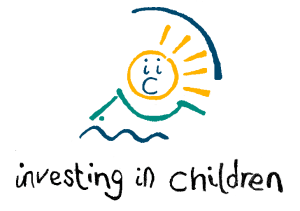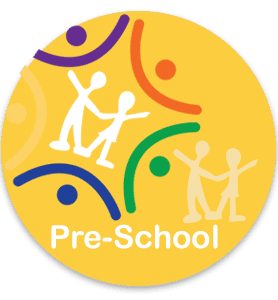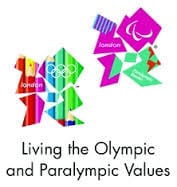What is taught?
At Bearpark, we recognise that children will need and use maths skills and knowledge for the rest of their lives, and for this reason, we want to prepare our children for the world of maths beyond education, as well as the next phase in their education. The children in Bearpark deserve the very best. This is why we have developed a strong, whole team approach to the teaching of maths. We recognise the importance of ensuring that the fundamental skills of fluency, reasoning and problem solving are fully embedded within the everyday teaching of maths lessons and are consistently developed over time. We will build on the fluency and skills that the children already know and help them to become problem solvers.
We will do this by training our teachers and support staff, using appropriate resources and embedding the mastery approach to teaching maths, to deepen the understanding of our budding mathematicians. This whole school approach will begin in our nursery where shape and number will feature in all areas of learning both indoors and outdoors and will progress all of the way up to Year 6, building on prior learning. We will continue working with the Maths Hub to embed the mastery approach and ensure that we deliver high quality maths teaching, which meets the needs of all of the children in school.
Our children’s mathematical development begins in Early Years through the EYFS curriculum and from Year 1 onwards our curriculum follows the National Curriculum for Mathematics, which aims to ensure that all children:
- become fluent in the fundamentals of mathematics, including through varied and frequent practice with increasingly complex problems over time, so that pupils develop conceptual understanding and the ability to recall and apply knowledge rapidly and accurately
- reason mathematically by following a line of enquiry, conjecturing relationships and generalisations, and developing an argument, justification or proof using mathematical language
- can solve problems by applying their mathematics to a variety of routine and non-routine problems with increasing sophistication, including breaking down problems into a series of simpler steps and persevering in seeking solutions
We teach maths progressively through the sharing of key knowledge and skills, alongside visual representations of mathematical concepts and ideas. We recognise the importance of children also developing an enjoyment of mathematics and to experience success in the subject developing their ability to reason and solve problems with increasing confidence.
We want children to recognise the importance of maths in the wider world, using their mathematical understanding to make rich connections in their own lives and through a range of different contexts. We aim to develop children’s curiosity about the subject, as well as an appreciation of the beauty and power of mathematics in the modern and natural world in which we live.
Maths in the Early Years
Our children start their learning journey in Nursery and Reception where they develop a strong grounding in number and develop the necessary building blocks to excel mathematically. Children are taught maths daily and are encouraged to explore their growing understanding of number and mathematical vocabulary across all areas of learning.
We provide children with frequent and varied opportunities to build and apply their understanding of number and the relationships between and the patterns within them. We provide rich opportunities for children to develop their spatial reasoning skills across all areas of mathematics including shape, space and
measures. We aim to develop positive attitudes and interests in maths, teach children to look for patterns and relationships, spot connections, ‘have a go’, and talk to adults and peers about what they notice and not be afraid to make mistakes.
Children learn about maths through play and their daily experiences. Children are given opportunities to count reliably and to secure their number knowledge from 0 –10, place numbers in order, subitise numbers and know some number bonds. They will develop a mathematical vocabulary through play and talk. Concrete manipulatives and pictorials are used to represent new concepts to the children supporting their conceptual understanding. The use of hooks and real life problems is used to support the deeper understanding of the mathematical concept. Both indoor and outdoor areas are full of mathematical opportunities including lots of exciting things for children to explore, sort, compare, count, calculate and describe. This ensures we support them to be creative, resilient, critical thinkers and problem solvers, who are willing to have a go.
How is mathematics taught?
Our aim at Bearpark Primary is that through our blocked approach to teaching each of the mathematical learning strands, children will become increasingly more confident and fluent in their understanding of each yearly National Curriculum objective. Stranded blocks are progressive, thereby allowing the children to develop an ability to use their knowledge of mathematical concepts and ideas to a greater depth of understanding and complexity.
Our mastery approach to planning is primarily focused upon the White Rose Maths schemes of learning, which can also be supplemented from a range of other high quality resources and providers such as NRich, NCETM and Classroom Secrets, alongside these three key principles:
- Conceptual understanding
- Language and communication
- Mathematical thinking
Each scheme has full coverage of National Curriculum objectives, which are met through varied fluency, reasoning and problem-solving approaches. Within each year group, our teachers use small stepped learning challenges in conjunction with key ‘mastery’ mathematical vocabulary – an approach to challenge, extend and deepen the pupil’s understanding.
We use an interchangeable CPA approach.
Concrete – children have the opportunity to use concrete objects and manipulatives to help them understand and explain what they are doing.
Pictorial – children then build on this concrete approach by using pictorial representations, which can then be used to reason and solve problems.
Abstract – With the foundations firmly laid, children can move to an abstract approach using numbers and key concepts with confidence.
Our teaching and learning incorporates the use of a range of practical equipment, thereby allowing us to present maths in many different forms and contexts, which can suit the needs of children with varied learning styles. With a continuous focus on revisit and review, teaching aims to reinforce and consolidate daily work, through the repetition of activities which address ‘non-negotiable’ basic skills. All of which are fundamental in the development of a confident mathematician.
As well as their daily discrete Maths lesson, children in Reception, Year 1 and Year 2 also take part in Mastering Number sessions, which aims to secure firm foundations in the development of good number sense for all children. The aim over time is that children will leave KS1 with fluency in calculation and a confidence and flexibility with number. Attention will be given to key knowledge and understanding needed in Reception classes, and progression through KS1 to support success in the future.
Why is maths taught in this way?
The maths curriculum is taught this way at Bearpark to ensure children have the time and opportunity to explore, develop and demonstrate mathematical ideas, while enriching their learning experience and deepening understanding. Our focus for teaching maths this way is that by the end of KS2 pupils are able to:
- Demonstrate quick recall of facts and procedures
- Show a clear understanding of the skills and knowledge relating to maths, needed to be a mathematician.
- Use the correct mathematical vocabulary to articulate their learning and experiences as a mathematician.
- Be enthusiastic and confident in discussing their learning and experiences in maths.
Long Term Plan 2023/2024
Bearpark Primary School Yearly Maths overview 2023 /24
Previous Long Term Plans
Y1 Maths Long Term Plan 2022-23
Y2 Maths Long Term Plan 2022-23
Y3 Maths Long Term Plan 2022-23
Y4 Maths Long Term Plan 2022-23
Y5 Maths Long Term Plan 2022-23
Y6 Maths Long Term Plan 2022-23
Children say:
‘We learn a lot and it is fun.’
‘Maths at Bearpark is very good. I love it!’
‘What I learned last year about times tables has helped me solve this fraction problem’.
Parents say:
‘Numbers are an important part of the curriculum at Bearpark.’
‘My child enjoys Maths at Bearpark.’
‘I loved coming to the maths session for parents this morning. The rekenreks are like the abacus I used’.
[Slideshow "mathematics-in-bearpark" not found]
About The Mastery Approach
Click here to see the 5 Big Ideas 2023
Coherence
Teaching is designed to enable a coherent learning progression through the curriculum, providing access for all pupils to develop a deep and connected understanding of mathematics that they can apply in a range of contexts.
Representation and Structure
Teachers carefully select representations of mathematics to expose mathematical structure. The intention is to support pupils in ‘seeing’ the mathematics, rather than using the representation as a tool to ‘do’ the mathematics. These representations become mental images that students can use to think about mathematics, supporting them to achieve a deep understanding of mathematical structures and connections.
Mathematical Thinking
Mathematical thinking is central to how pupils learn mathematics and includes looking for patterns and relationships, making connections, conjecturing, reasoning, and generalising. Pupils should actively engage in mathematical thinking in all lessons, communicating their ideas using precise mathematical language.
Fluency
Efficient, accurate recall of key number facts and procedures is essential for fluency, freeing pupils’ minds to think deeply about concepts and problems, but fluency demands more than this. It requires pupils to have the flexibility to move between different contexts and representations of mathematics, to recognise relationships and make connections, and to choose appropriate methods and strategies to solve problems.
Variation
The purpose of variation is to draw closer attention to a key feature of a mathematical concept or structure through varying some elements while keeping others constant.
- Conceptual variation involves varying how a concept is represented to draw attention to critical features. Often more than one representation is required to look at the concept from different perspectives and gain comprehensive knowledge.
- Procedural variation considers how the student will ‘proceed’ through a learning sequence. Purposeful changes are made in order that pupils’ attention is drawn to key features of the mathematics, scaffolding students’ thinking to enable them to reason logically and make connections.
Mastering Number
We implement the Mastering Number programme with our Reception, Year 1 and Year 2 children, in order to develop good number sense.
Click on this link to find out more.
https://www.ncetm.org.uk/maths-hubs-projects/mastering-number/







